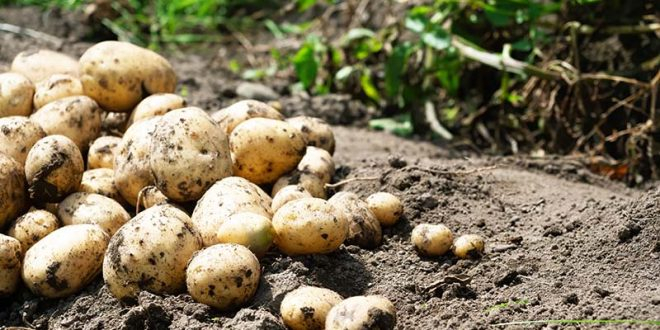Even though 5% of fresh potato consumption in Belgium is organic, according to GfK data, in Flanders, the area of organic potatoes remains at about 150 ha.
According to Inagro’s horticultural consultants, there are “probably” two reasons for this situation. Firstly, conventional potato cultivation is largely oriented towards industry, meaning that there’s little interest in organic at the moment.
On the other hand, Inagro’s experts see accelerated growth of the organic potato acreage in Wallonia, where about 700 hectares of organic potatoes are now grown. The loamy soils lend themselves well to potatoes for the fresh produce market, the large plots allow for larger homogeneous lots and some Walloon growers have also invested heavily in modern storage accommodation, which means that good quality organic potatoes can be supplied until late spring.
“Technically, we can offer Belgian organic potatoes until the end of May,” says Bart Nemegheer of de Aardappelhoeve during a recent field visit to Inagro’s test farm for organic farming, cited by AGF and Inagro consultancy websites. “There is also more and more interest from the retail sector, which is making Belgian origin a spearhead. At the moment we are still dependent on imports from Spain and Italy in the early segment. Can Flanders close the gap in June and August by focusing on early crops?”
During this occasion, Bart Nemegheer presented a clear challenge to the growers present. He also wants to actively bet on it next season. During the field visit, a first interesting and at the same time critical exchange of ideas followed about, among other things, the desired quality, the choice of varieties, the harvesting technique, and of course the pricing.





